Only the Jews
For the right understanding of the ten commandments, these rules are to be observed:
1. That the law is perfect, and bindeth every one to full conformity in the whole man unto the righteousness thereof, and unto entire obedience for ever; so as to require the utmost perfection of every duty, and to forbid the least degree of every sin.
2. That it is spiritual, and so reacheth the understanding, will, affections, and all other powers of the soul; as well as words, works, and gestures.
3. That one and the same thing, in divers respects, is required or forbidden in several commandments.
4. That as, where a duty is commanded, the contrary sin is forbidden; and, where a sin is forbidden the contrary duty is commanded: so, where a promise is annexed, the contrary threatening is included; and, where a threatening is annexed, the contrary promise is included.
5. That what God forbids, is at no time to be done; what he commands, is always our duty; and yet every particular duty is not to be done at all times.
6. That under one sin or duty, all of the same kind are forbidden or commanded; together with all the causes, means, occasions, and appearances thereof, and provocations thereunto.
7. That what is forbidden or commanded to ourselves, we are bound, according to our places, to endeavor that it may be avoided or performed by others, according to the duty of their places.
8. That in what is commanded to others, we are bound, according to our places and callings, to be helpful to them; and to take heed of partaking with others in what is forbidden them.
Westminster Larger Catechism
What is the relationship between the Christian and the Ten Commandments? Historically, at least for the main Protestant denominations, this answer is clear: They are just as relevant today as they were the day they were given. Indeed they were equally relevant before they were given. The answer is hedged about with a good deal of talk about the ‘moral law’ and some-such, but that was the answer. That the Ten Commandments did not merely represent some special, extra for experts, laws that the Jews were to follow… but reflected the will of God for all of mankind for all times.
Only the Jews
For circumcision verily profiteth, if thou keep the law: but if thou be a breaker of the law, thy circumcision is made uncircumcision.
Therefore if the uncircumcision keep the righteousness of the law, shall not his uncircumcision be counted for circumcision?
And shall not uncircumcision which is by nature, if it fulfil the law, judge thee, who by the letter and circumcision dost transgress the law?
For he is not a Jew, which is one outwardly; neither is that circumcision, which is outward in the flesh:
But he is a Jew, which is one inwardly; and circumcision is that of the heart, in the spirit, and not in the letter; whose praise is not of men, but of God.
Romans 2:25-29
Along comes a few Christians who, in one way or another, seem to say that the OT is passe, and that the Ten Commandments were given ‘to the Jews’. Which leads me to the question in the title: is it ‘Only the Jews’ who are not supposed to commit adultery? Only the Jews who are to love their neighbour, or love God?
A New Law
Let your women keep silence in the churches: for it is not permitted unto them to speak; but they are commanded to be under obedience, as also saith the law.
I Corinthians 14:34
The answer seems to be, and I await clarification on this, that, like Harrison Ford, one law is put in at the very second that another law is taken out. That as soon as God tells that Jews that, as Christians, the old law telling them not to murder is done away with He tells them that, of course, as Christians, they are not to murder… or commit adultery, or steal, or covet… indeed everything seem to have been replaced except bestiality1 and keeping the Sabbath… at least as the old classification of ‘moral law’ is concerned.
The fundamental question here is… what is the law? Or what was it, if you prefer? Was it a reflection of the character of God? Or was it just a random set of weird rules put in place to make the Jews look funny? To make every one pay attention to them?
That last cannot be the answer that anyone who holds to the inerrancy of Scripture and the Sovereignty of God.
And if God has published a new law in the New Testament… can I have a copy? No, seriously, can you list all of the actual laws, or commandments or, if you are really pressed, principles that you think should guide the NT believer now that (in your opinion) the OT law has passed away? Can I get an actual copy, not just a hand wave? Is fornication OK now?
Context, Context
If ye fulfil the royal law according to the scripture, Thou shalt love thy neighbour as thyself, ye do well:
But if ye have respect to persons, ye commit sin, and are convinced of the law as transgressors.
For whosoever shall keep the whole law, and yet offend in one point, he is guilty of all.
For he that said, Do not commit adultery, said also, Do not kill. Now if thou commit no adultery, yet if thou kill, thou art become a transgressor of the law.
So speak ye, and so do, as they that shall be judged by the law of liberty.
For he shall have judgment without mercy, that hath shewed no mercy; and mercy rejoiceth against judgment.
James 2:8-13
There is an answer, or, at least, a partial answer. The answer can be… context. It could be that the ‘ten commandments were for the Jews’ people are thinking of it like speed limits. The speed limit on a totally flat freeway in the middle of nowhere in Texas, is different than the speed limit for a crowded, crooked street with lots of kids playing on it near a school and a hospital back East.
But, once again, while that may work in theory, it has a bit of a practical problem. Once again we get to say, “It was just the Jews who weren’t allowed to murder” in response. To which the “OT for the Jews” crowd is forced into saying, “No, that law was for everyone for all time,” and give some justification as to why the coming of Christ, or the fact we are Gentiles, means that that law isn’t abrogated, or that there is a different law for which the ‘Thou Shalt not Kill’ of the Jews was a specific example.
Which works, except that it sort of ends up happening to every single one of the Ten Commandments except for the Sabbath. So Murder, Adultery, parents… those all represent universal truths of God’s nature present since the creation (and, I suppose, before that)… but the Sabbath doesn’t.
And since, as I understand it, they also don’t believe in the distinction between moral, civil, and ceremonial laws; their argument gets harder. Cause the whole ‘context’ thing is what the church has typically used to define that difference. The church historical has said that the New Testament church, meeting all over the world, does not need the ceremonies, indeed cannot even use, that were written for the Temple in Jerusalem. That the American Indian would have problems fleeing to one of the cities of refuge in Israel.
The List of Sins
There are a couple of places in the New Testament where Paul lists a long list of sins that are incompatible with the Christian faith. They are worthy of death, they are not things that Christians should be doing. Long lists. There a lot more shorter lists.
Being filled with all unrighteousness, fornication, wickedness, covetousness, maliciousness; full of envy, murder, debate, deceit, malignity; whisperers,
Backbiters, haters of God, despiteful, proud, boasters, inventors of evil things, disobedient to parents,
Without understanding, covenantbreakers, without natural affection, implacable, unmerciful:
Who knowing the judgment of God, that they which commit such things are worthy of death, not only do the same, but have pleasure in them that do them.
Romans 1:29-32
But we know that the law is good, if a man use it lawfully;
Knowing this, that the law is not made for a righteous man, but for the lawless and disobedient, for the ungodly and for sinners, for unholy and profane, for murderers of fathers and murderers of mothers, for manslayers,
For whoremongers, for them that defile themselves with mankind, for menstealers, for liars, for perjured persons, and if there be any other thing that is contrary to sound doctrine;
According to the glorious gospel of the blessed God, which was committed to my trust.
I Timothy 1:8-11
Now, if we look at that list of sins, and we compare them to the Ten Commandments, what do we see? Well, we either see (as Christians of my persuasion would say) that they all fit into the Ten Commandments or, if we eliminate the Ten Commandments from our thinking… we end up with a lot more than ten! Indeed the lists not only include some pretty vague words like ‘unGodly’, but the last list ends with ‘any other thing…”.
lawless
sinners,
implacable,
unmerciful:
inventors of evil things,
Without understanding,
wickedness,
maliciousness;
ungodly
haters of God,
proud,
profane,
unholy
without natural affection,
disobedient,
disobedient to parents,
murderers of fathers and
murderers of mothers,
murder,
manslayers,
fornication,
covenantbreakers,
whoremongers,
defile themselves with mankind
menstealers
debate,
deceit,
malignity;
whisperers,
boasters,
Backbiters,
liars, for
perjured persons,
despiteful,
full of envy,
covetousness,
The Repetition of the Law
Children, obey your parents in the Lord: for this is right.
Honour thy father and mother; (which is the first commandment with promise;)
That it may be well with thee, and thou mayest live long on the earth.
Ephesians 6:1-3
Now, when the law is repeated in the New Testament the idea, as I understand it, is that that repetition itself makes it part of the ‘New Law’. The law of the New Testament. Christ’s law for the Gentile Church.
But… there is a problem. You might call it a linguistic problem. When Paul, in Ephesians 6:1-3 ‘repeats’ the law, he uses the words ‘the first commandment with promise’. And, having used those words, he goes on to ‘finish the verse’… ie to repeat the context of the commandment… as it occurred in the Old Testament.
It is as if a modern politician was in the middle of a speech, and he said, “We, the people…”. And you were, like, “Where have I heard that before?” And he goes on and on with ‘alter and abolish it’ and suddenly you realise… he’s quoting. (In this case from the Declaration of Independence.)
Now, one can quote for lots of reasons, but in this case he is quoting… authoritatively. He is just putting out the commandment, with a bit of a footnote, as if it should be obvious to his audience that… it still applies.
Lawless
Whosoever committeth sin transgresseth also the law: for sin is the transgression of the law.
I John 3:4
Here’s a problem. In the New Testament there is a word, ‘Anomia’. The word is translated ‘iniquity’ most of the time, and ‘unrighteousness’ once. The word comes from ‘a’, which translates as ‘not’, and ‘nomos’ which means ‘law’. So to be ‘a-nomos’ is to be ‘without law’. Or, put otherwise, the word meaning ‘without law’ is translated ‘iniquity’.
And that is a kind of a hard thing for those who wish to say that the law was only for the Jews.
But wait! There’s more! I John 3:4! The word ‘anomos’ there is directly tied to the word ‘sin’ (harmartia). Sin, we are told, is ‘anomos’. Sin is being without the law. Or, if you prefer, going against the law.
And then again, in I Timothy 1:9, in the great list of sins that Paul states the law is made for, cometh the word ‘lawless’… anomos. One of the great sins, of which Paul says the righteous man is free, is ‘lawlessness’… being without the law.
Conclusion
Wherefore the law is holy, and the commandment holy, and just, and good.
Was then that which is good made death unto me? God forbid. But sin, that it might appear sin, working death in me by that which is good; that sin by the commandment might become exceeding sinful.
For we know that the law is spiritual: but I am carnal, sold under sin.
For that which I do I allow not: for what I would, that do I not; but what I hate, that do I.
If then I do that which I would not, I consent unto the law that it is good.
Romans 7:12-16
Like some magician pulling a bit of sleight of hand with some cards, this modern Christian wishes to replace the holy and perfect law of God with a law of his own devising. A law that, it seems, often comes and goes as he finds bits of it that he likes or dislikes. He may keep the law against adultery (for the moment), but he eliminates the law of the Sabbath, and against Sodomy.
But the New Testament writers did not do so. They quoted from the law as authoritative. They used it to define sin. Even when they spoke of the end of the law, the uselessness of the law, the replacement of the law, it was built upon the perfection of the law. That the failure of the law was not a failure of the law, but of our failure to keep the law.
If there had been a law that could have saved… it would have been the law of God. The one, holy, and perfect law of God.
But the law cannot save, only grace, through faith, in Christ can save. All the law can do is to reveal to us the will of God, the nature of God, the perfect holiness of God.
When Christ spoke against the law, he did not speak against the law itself, he spoke against the failure of the Pharisees to rightly interpret to the law. To follow the spirit of the law. Far from encouraging them to discard the law… He encouraged them to obey it!
Thank you for reading Von’s Substack. I would love it if you commented! I love hearing from readers, especially critical comments. I would love to start more letter exchanges, so if there’s a subject you’re interested in, get writing and tag me!
Being ‘restacked’ and mentioned in ‘notes’ is very important for lesser-known stacks so… feel free! I’m semi-retired and write as a ministry (and for fun) so you don’t need to feel guilty you aren’t paying for anything, but if you enjoy my writing (even if you dramatically disagree with it), then restack, please! Or mention me in one of your own posts.
If I don’t write you back it is almost certain that I didn’t see it, so please feel free to comment and link to your post. Or if you just think I would be interested in your post!
If you get lost, check out my ‘Table of Contents’ which I try to keep up to date.
Von also writes as ‘Arthur Yeomans’. Under that name he writes children’s, YA, and adult fiction from a Christian perspective. His books include:
The Bobtails meet the Preacher’s Kid
and
Arthur also has a substack, and a website.
Thanks again, God Bless, Soli Deo gloria,
Von
Links
https://godwords.org/is-supersessionism-biblical/
I am not saying that modern Christians approve of bestiality (although many of them seem to be OK with Sodomy and fornication); but that those who have scoured the New Testament for laws to replace the OT laws can’t seem to find it in their list… they just short of shove it in the middle of the pack and hope we don’t notice.
Bestiality is, of course, forbidden under ‘adultery’ and ‘fornication’ which include all sexual sins.


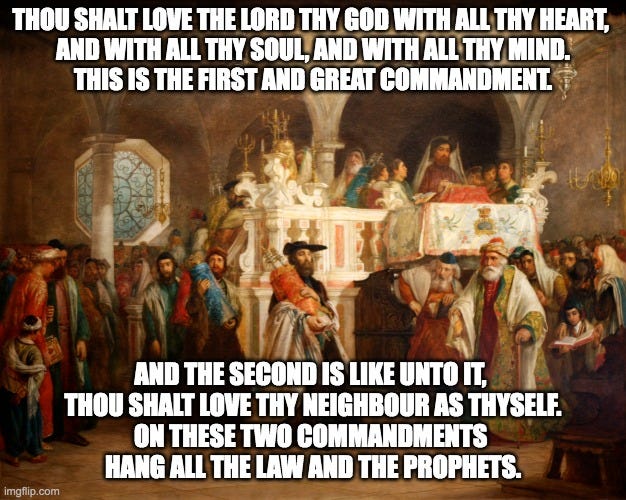
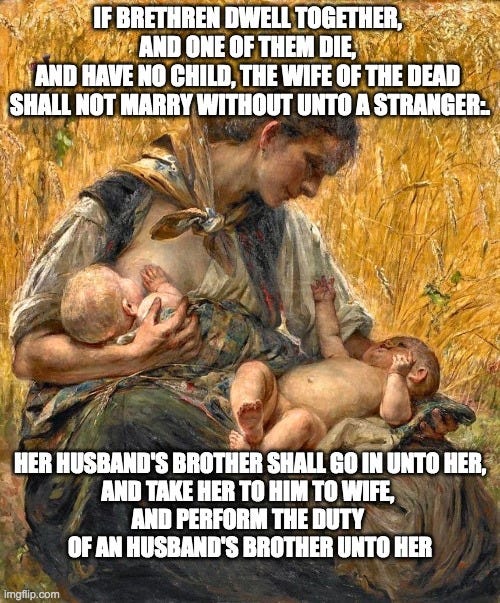
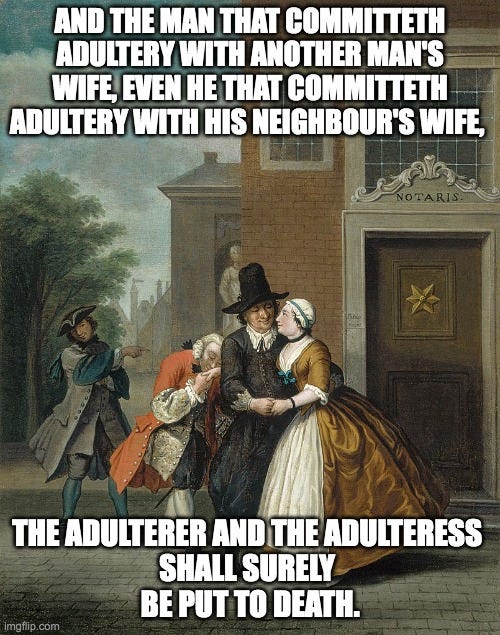
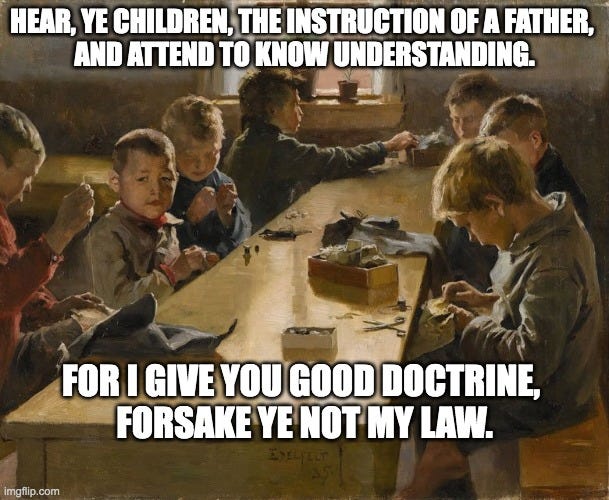
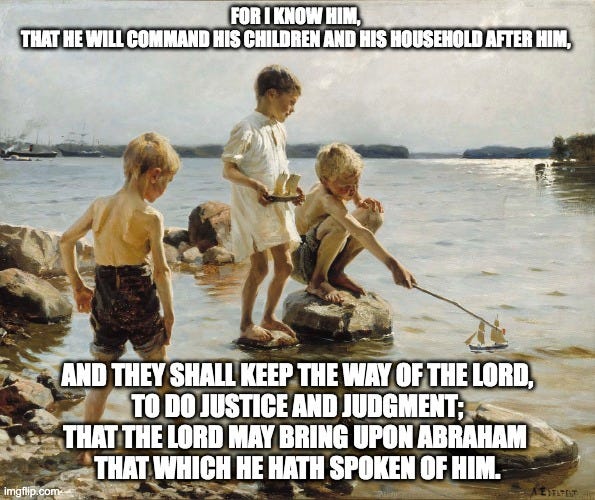
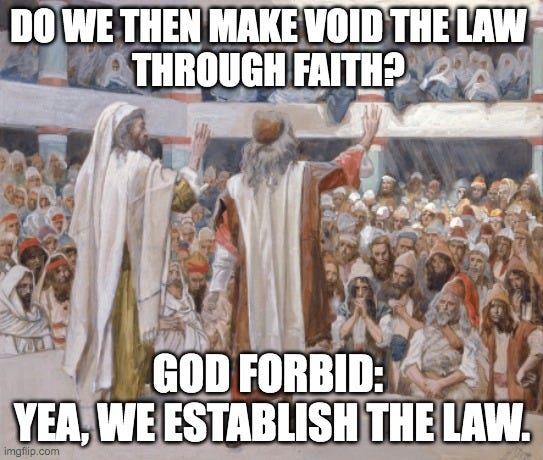
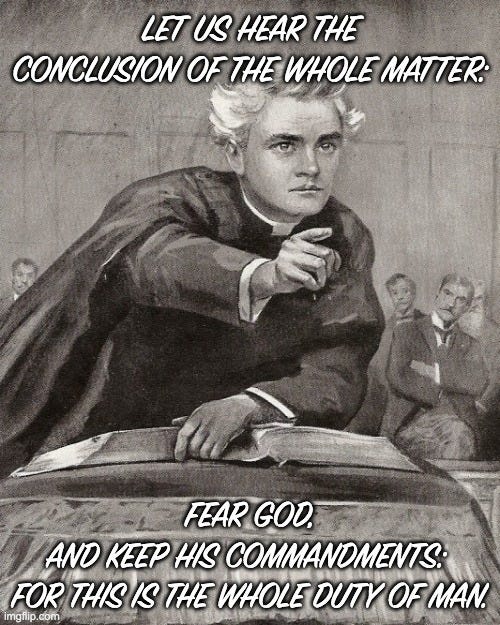
That's a lot to take in Amigo. 📖
Grace and peace to you! 🌐 ☦️ 🕊️
Σοφία Χάρης Αγάπη Δόξα! 🔥
Love and Keep.....
.....forgive, judge not.
μετάνοια ⛪📿🕯️❤️🩹
O'Lord Jesus Christ Son of God have mercy on me the sinner...
....MOST HOLY THEOTOKOS SAVE US!